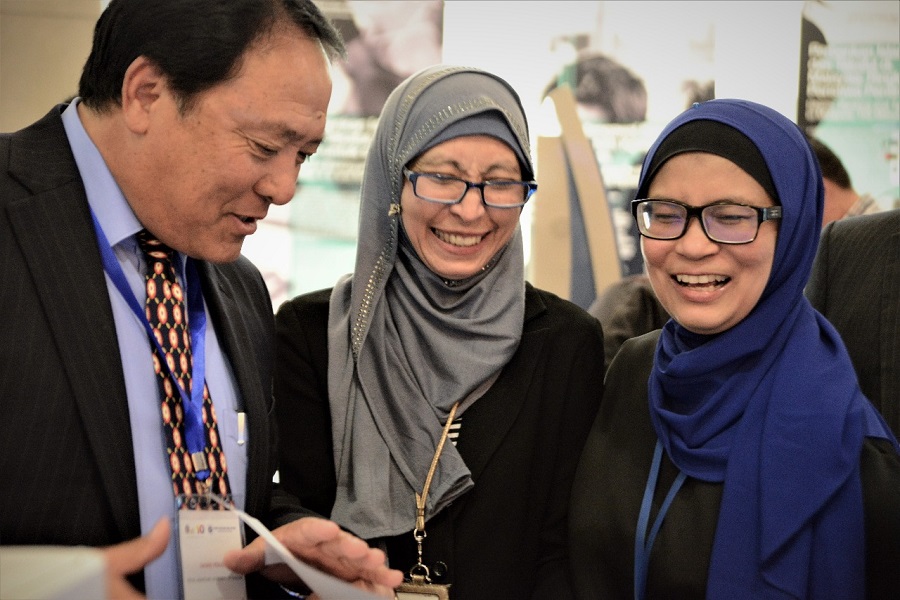The global population may be aging, but Bhutan is safely bucking the trend. With an estimated 60 percent aged below 25, this represents a key demographic that Royal Monetary Authority of Bhutan (RMA Bhutan) Governor Dasho Penjore hopes will help create a more level playing field against the country’s better-connected neighbors.
Governor Dasho Penjore recently sat down with AFI to discuss how this new generation’s economic potential can be harnessed to encourage greater use of digital financial services (DFS) and boost connectivity – both locally and to the wider world.

RMA Governor Dasho Penjore (left) during the 2018 AFI-BNM High-Level Joint Learning Program in Malaysia
“Being a landlocked country, e-commerce can address our natural constraints of high transportation and a lack of accessibility,” he said, adding that the central bank was already working hard to promote an enabling environment for e-commerce.
It is here that Bhutan’s so-called “youth bulge” will play a crucial role, Governor Dasho Penjore said, explaining that they will bring new skills and a more “business-like approach” to production and trade than older generations, particularly in areas like farming. But such dramatic change will not happen overnight.
“We are a largely agriculture-based, green society. Adopting modern changes to businesses and then changing every individual toward being more business-friendly or having a business-skilled population, it takes time,” he said.
He also expressed hope that young entrepreneurs will bring greater economic diversify by moving Bhutan away from subsistence farming and into more profitable industries like arts and craft, which can be exported to the wider world.
Here too, Dasho Penjore noted that DFS would play a significant role, emphasizing that banks and the national postal service must work together to open international payment gateways. This, he added, would enable those purchasing goods from Bhutan to “conveniently send money through the gateway and then the supplier can dispatch the goods using the logistics – packaging and transportation”.
“When it comes to businesses, trade and commerce, our over-arching focus is to increase the market access,” he added.
Helping stimulate market development, RMA Bhutan has even introduced priority sector lending that targets the youth and rural communities as well as green insurance products that protect those most at-risk to the negative impacts of climate change.
But while the youth represent huge opportunities, they also pose significant challenges; not least due to low levels of financial literacy. To combat this, RMA Bhutan is embarking on an ambitious financial literacy program – as outlined in its five-year National Financial Literacy Strategy – that includes integration of topics such as insurance, savings and consumer protection into the national education curriculum.
“RMA Bhutan is taking a lead role in financial literacy, entrepreneurship programs and then the business-like way of doing things,” he said.
In terms of regulation, Governor Dasho Penjore said that the central bank was building strong governance, explaining that it had cooperated with the government on implementing rules and regulations that cover both producers and consumers.
“If we don’t embrace technology, then there is a high probability that we will get left behind,” he said.

 About
About
 Online
Online
 Data
Data



















